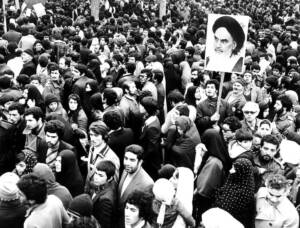US President Joe Biden’s assertion of “America is back” has taken on a nuanced significance amid Israel’s extended military operations in Gaza. In the Middle East and the Global South, he is perceived as yet another American leader whose actions reflect a seeming disregard for Arab lives. The ongoing conflict, now in its fourth month, has prompted observations on the intensity of Israel’s military pursuits and the steadfast backing it receives from Western governments. For many in the region, this war is not solely Israeli Prime Minister Binyamin Netanyahu’s; it is equally President Biden’s. The sustained lack of acknowledgment concerning the extent of the devastation reinforces the perception that Western leaders, including Biden, exhibit an apparent undervaluation of Arab lives.
The Cold War era, particularly in the context of post-colonial states, echoes familiar themes for those with lived experiences from that period. Over the past century, the United States and key Western nations, notably the United Kingdom, have adhered to an interventionist, militaristic, and anti-democratic foreign policy, often neglecting the interests of the people in the Middle East. Historical analysis suggests that Western decisions were primarily motivated by the aim to counteract communism and ensure the supremacy of liberal capitalism.
Join us on Telegram: https://t.me/tfiglobal
In the pursuit of these objectives, the United States presented Middle Eastern leaders with a binary choice: either align with Western-led regional defense alliances and open their economies to global capital, or face categorization as adversaries. In the pursuit of stability and a continuous supply of affordable oil, Western powers entered questionable alliances with Middle Eastern autocrats, actively contributing to the suppression of emerging democratic movements.
In the early 1950s, the democratically elected Mohammed Mossadegh, who championed liberal democratic principles, assumed the role of Iran’s prime minister and nationalized the country’s oil. However, the CIA and MI6 orchestrated a coup to replace him with the Shah, disrupting Iran’s democratic progress and paving the way for the 1979 Islamic Revolution, establishing the current theocratic regime.

A parallel occurrence unfolded in the 1950s when Gamal Abdel Nasser, a charismatic leader initially favorably inclined towards the US, assumed the presidency in Egypt. Nasser, deciding against joining a Western-led defense pact, faced repercussions. To coerce his removal, the United States and Britain withdrew support for the significant Aswan High Dam project on the Nile River. The ensuing Suez Crisis of 1956 brought the world to the brink of war. Consequently, the leader of the most populous Arab state, once amicable toward the West, transformed into a staunch adversary.
Read More: Trump’s Victory Echoes: Americans Yearn for His Return
The US-led West has historically adopted an assertive stance in various regions, but in the Middle East, Western officials have consistently justified their neo-imperial endeavors by asserting an alleged incompatibility between Islam, Arab culture, and democracy.
This pattern sends a clear message to these strongmen: as long as they adhere to American directives, their repressive actions and human rights violations will be overlooked. Conversely, for the people in the region, the message is equally straightforward: their lives and rights carry minimal weight in the Western calculus, despite the lofty rhetoric espoused about democracy and the rule of law. The invasion and prolonged occupation of Afghanistan and Iraq serve as stark examples, illuminating the stark disparity between Western principles and the practical outcomes in the Middle East.
Barack Obama marked a departure in US foreign policy, addressing the nation’s persistent wartime stance in his 2014 speech at the US Military Academy at West Point. He criticized the inclination to hastily engage in military endeavors without comprehensive consideration of consequences, international support, and legitimacy. According to Obama, the costliest mistakes in the region stemmed from a lack of restraint.
Regrettably, President Biden, representing the Cold War era of American leadership, seems to have overlooked Obama’s prudent perspective. Until October of the previous year, Biden had allocated minimal attention to the Israeli-Palestinian conflict. He seemingly accepted the enduring Palestinian plight and directed his focus toward expanding the Abraham Accords. These accords, facilitated by the Trump administration, aimed to normalize Israel’s relations with Arab autocrats, trading security assistance for regional cooperation, thus diverting attention from the longstanding commitment to Palestinian statehood.
Read More: U.S. Steel: SOLD. The Red Flag for America’s Future
Since Hamas’s attack on October 7, exposing perceived shortcomings in Biden and Netanyahu’s approach, there has been a lack of restraint and consideration of the consequences of the ongoing conflict. Biden and European allies have fully endorsed Israel’s aggressive actions against Gaza, despite increasing civilian casualties and a growing humanitarian crisis. Despite global calls for a ceasefire, Biden has shown no willingness to intervene.

Escalations on the Israel-Lebanon border and US-led airstrikes in Yemen and Iraq suggest the potential for further conflict. Contrary to Biden’s claim of a departure from Trump’s policies, their approaches align in the Middle East. Biden’s support for Netanyahu may backfire, as Netanyahu rejects Biden’s backing for a Palestinian state, emphasizing Israel’s security control over the entire west of the Jordan River. This assertion coincided with the start of the US presidential campaign, with Netanyahu favoring Trump.
Even if Biden secures a second term, the tragic irony is that the Middle East is currently less stable than at any modern point in its history. The Western strategy is deemed a colossal failure, leaving a lasting burden on the world.







